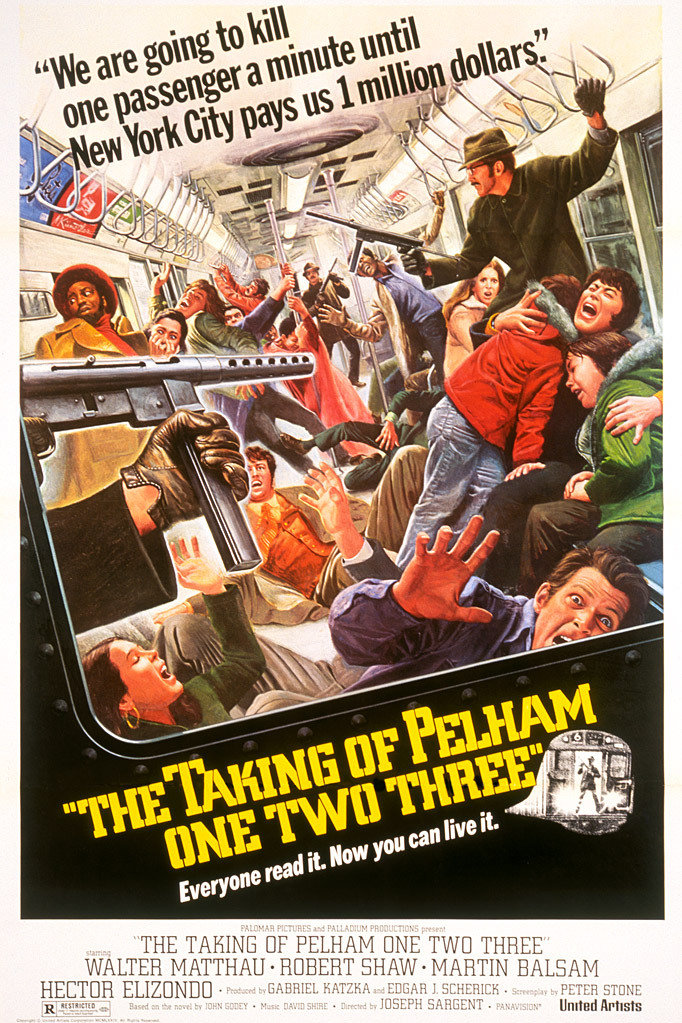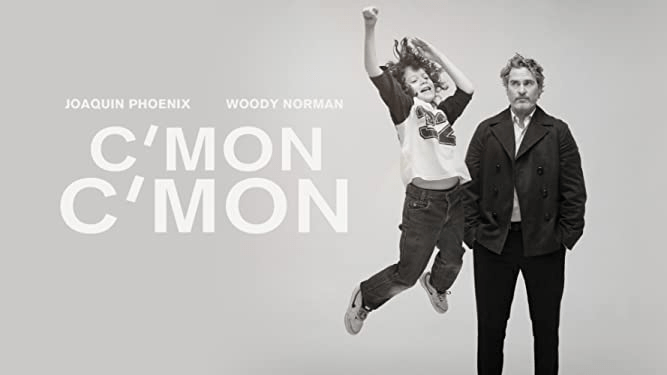When Todd Field’s picture was lauded and criticized by conservatives and liberals alike, I knew it had to be different in a fruitful way. For some, the film is a clear and direct rebuke of privilege and abuse of power (“The film does tell its story in an elliptical, at times confounding way, but that stylistic choice shouldn’t be mistaken for moral indecision”). For others, the director is an apologist (“Field views identity politics as a zero-sum game that seeks to destroy true art”). It’s a shame it took me so long to see it, because no matter where you land, the film is a masterpiece, the best picture of last year.
Strangely, I was reminded of Apple TV’s foray into prestige television, The Morning Show, the first season of which delved deeply into the #MeToo movement and tackled it with nuance and intelligence – until the end, when the show naturally had to bow to more conventional norms, transforming a multi-layered, canny drama into a chest thumping lecture that naturally relegated women to perpetual victims in order to “celebrate“ them. But 90% of that show is grand entertainment that eschews the easy answers and bumper sticker mentality so explicit in drama “ripped from the headlines.”
Field is under no such pressure or expectation here, and the world he portrays could not be further from the vacuous wasteland of network television. His protagonist, Lydia Tár, is a celebrated orchestra conductor and scholar in the mold of Leonard Bernstein. She is kinetic, committed, urbane and refreshingly unburdened by the fetishization of status and injury so prevalent in modern times. When Tár guest lectures at Juilliard and a student explains to her that he is uncomfortable with the music of Bach given the composer’s status (“Nowadays, white, male, cis composers—just not my thing”), she responds, “Don’t be so eager to be offended. The narcissism of small differences leads to the most boring conformity.” The exchange is tense, edifying and epitomizes the generational clash of substance versus fad.
Soon enough, the incident is released to social media, edited to make Tár look as bad as possible, and she must confront the fallout.
Comparatively, it is the least of her concerns. Because in the midst of what should be a minor kerfuffle, a former student kills herself, one with whom Tár had a romantic relationship and then subsequently blackballed. Then, Tár withholds a coveted elevation from her primary assistant, another woman with whom it appears Tar (and maybe the deceased) had been intimate. Soon, all sorts of compromising texts and emails are released. Litigation naturally follows. Dangerously, Tár becomes infatuated with a third young woman, a brilliant young Russian cellist, who she favors with opportunity, losing her the support of her musicians and her wife, Sharon, who is also her concertmaster. Anybody mildly acquainted with the times can see what’s going to happen, except for Tár, who while intensely controlling, is also unsurprisingly unsophisticated (she asks the assistant to delete all of the emails to and from the deceased student, thinking, “well, that’s that!”) What follows is near horror film, as Tár is tormented by omens and assaults both real and possibly imagined.
Her fall is inevitable and painful. In the telling, we are confronted with a person of brilliance who is now being held to account for the excessive exercise of her own power. And while the viewer recognizes the inappropriate nature of what Tár has done, this is not a comeuppance or morality play. Nor is it an expose’ on the indiscriminate butchery of cancel culture.
Rather, the film is a case study of a destroyed career from forces within and without in the context of our modern, rather fevered times, and nobody gets off easy. The student at Juilliard is, of course, silly to be under the compulsion of such a limited worldview, but that is what young people do. Field smartly makes him attractive, a sort of wounded fawn (he clearly has some kind of physical tic as he repeatedly taps his leg in nervousness). Is Tár abusing a weakling? Or is she exactly the kind of person you want your child to learn from? Yes, she pushed back, but in the doing so, there is more caring – for the art and for the student – than derision or triumph. She is trying to get through to him, lest he imperil his own education and love of music in service of a dunce’s worldview. It is not mere coincidence that when he is rebutted by Tár, he casts a misogynistic slur. Old school in the young belly.
Similarly, the student who commits suicide was mentally shaky, as reflected in her increasingly hysterical email and text missives, while the current assistant is also star-struck and needy, always spookily, jealously hovering. Certainly, with intent or not, Tár takes advantage. Not that it would be hard. Dazzled, would-be acolytes would naturally be drawn to greatness. Hell, old Baby Boomers like Filmvetter are equally susceptible.
But in current discourse, the power imbalance is such that Tár has impermissibly utilized her privilege in a manner that is blah blah blah blah blah, blah blah. We’ve all undergone the training and endured the mantras. Like Miranda warnings, they need not be recited here.
Field is clearly interested in more. For example, are individuals who are soft naturally drawn to Tar for less emotional reasons? In the film, these individuals have absolutely no problem in the exchange as long as they are receiving favor. When it is withdrawn, they crumple. And strike. And let there be no doubt, Field certifies the fact of the bargains. In a break-up scene with Sharon (who is also portrayed as more fragile than Tár: when we meet her, she thinks she’s having a heart attack), the latter states that she always explicitly understood the quid pro quo, and only takes offense when Tár violates the negotiated terms of their relationship regarding other women.
Or, does brilliance excuse excess? I mean, fame often does, and Tár is famous, if only in the rarified circles of the classical music community. But she is also demonstrably and uniquely talented, what one might call an international treasure. The powerful and gifted don’t get a pass, for sure, but the loss of her gift is nothing to be sneezed at. And will Tár’s contributions be tarnished in history, like those of Bach, because of her personal failings? Whither the output of so many artists who turned out to lechers, perverts and worse? Must one separate the work from the creator? Isn’t the alternative an obliterative Manichean mindset that fuels the dip-shittery of fundamentalists, right and left? Or must we do everything in our power to exorcise Chinatown from our artistic memory because of the criminality of its creator so as to warn other miscreants of the consequences? And oh, how times have changed!
It’s not just the driven control of her career and others that damns Tár. Field also shows her desire for intimacy, her insistence that the beauty of wanting and being wanted can be replicated and perpetual, and the fear that soon it may not be so, as seminal to her fall. When Tár, who clearly lusts after the new ingenue both physically and artistically, is left in the hotel hallway to dine alone as the cellist goes to meet a young man, your heart almost breaks.
Blanchett is a wonder, confidently grounded yet hunted and haunted, not only by encroaching mores, but her desire for unfettered autonomy. Field portrays her as beset at all sides, and Blanchett gives the performance of a generation (in three different languages, I might add).
A meticulous, thought-provoking modern tragedy, which Paul Thomas Anderson summed up beautifully: “Every detail matters in this film. Nothing is not deliberate or full of intention. It’s directed with such perfectly controlled mayhem and glee by Todd, it’s really hard not to drool as another director. He made a film which for some years was considered a very dirty word, he made an art film. But it’s art that’s not fussy or pretentious. Just razor-sharp, pitch black, and hilarious. A very focused mirror held up to some of the worst of our human behaviors. It’s also a blast.”










